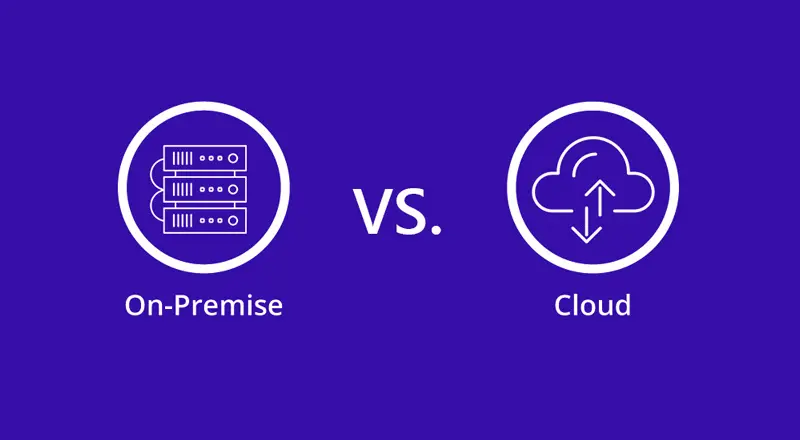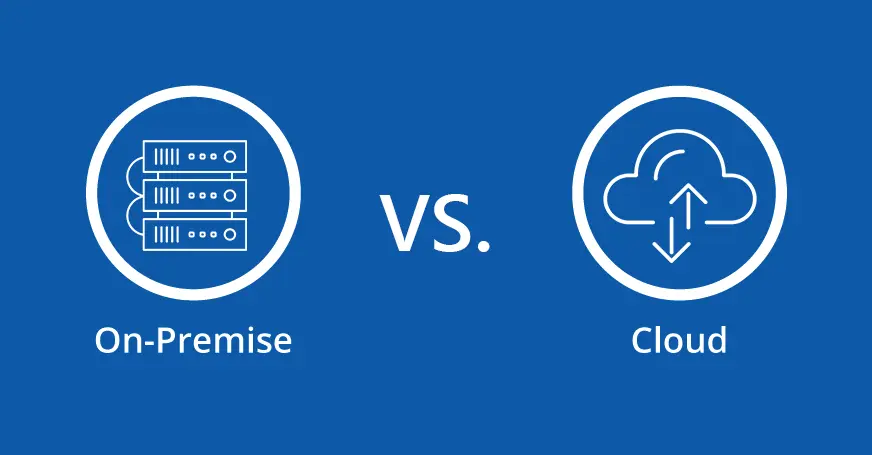
As the world moves it computing to the cloud, there are some businesses debating about going online or staying on premise. Some of the reasons for the debate include security, integration with other systems and access to backend databases to name a few. Moreover, there is also not one single solution to this challenge, as each business case is different and needs to be assessed accordingly.
There are many other aspects as well that need to be considered before deciding on the route of going online or on-premise with any business app including Dynamics 365. Microsoft Dynamics 365 is the next generation of intelligent business applications that help you empower your employees, engage customers, and optimize operations. Dynamics 365 breaks down the silos between CRM and ERP and is powered by data and intelligence.
This blog focuses on the three Dynamics 365 deployment options and factors to consider in your selecting the best deployment option for your company.
Microsoft Dynamics 365 has three deployment choices:
1. Microsoft Dynamics 365 online hosted by Microsoft
2. Microsoft Dynamics 365 on-premise on your company’s servers
3. Microsoft Dynamics 365 hosted at a co-location facility or Azure. This is similar to option two above except that your company is paying for co-located servers.

All three deployment methods of the application have the exact same core features and functionality. As such, the below does not list review application features, rather than differences you can expect from a deployment and ongoing maintenance.
The below does not go into the economic differences between on-premise or online. As such, as you review the list, bear in mind that should you decide to go on-premise, all costs for servers and related IT maintenance, backups, redundant and failover servers, disaster recovery, security, etc. would need to be maintained by your company. If you go co-located or Azure, the majority of these services would be included in the co-location / Azure fees by your provider. This is an important economic distinction to take into account when deciding between Microsoft Dynamics 365 online or on-premise or co-located.
| Description | Microsoft Dynamics 365 Online | Microsoft Dynamics 365 On-premise / co-location |
| Servers required | None – hosted by Microsoft. | Depending upon the number of users, this could entail one or multiple servers for optimal performance.Furthermore, server replacement every 2-3 years would be required based upon hardware and technology advances. |
| Server installation, maintenance, OS patches, SQL patches, security, anti-virus, etc. | Not required. Fully maintained by Microsoft as part of your subscription agreement. | Installation required. Maintained fully by the customer or co-location. |
| Data and power backups, redundant servers, failover, disaster recovery, etc. | Not required. All of this is provided by Microsoft as part of your subscription agreement. | Maintained fully by the customer or co-location. |
| Security | Provided by Microsoft. FYI, Microsoft spent $1 Billion in 2016 securing their cloud applications. | Provided by customer or co-location. |
| Dynamics 365 Product upgrades/service patches | All completed by Microsoft. 2-3 version upgrades are anticipated annually with multiple service packs throughout the year. You will always be on the latest version of the application as well is integration with other Microsoft applications (e.g. Outlook, Word, Excel).The above is all part of the Microsoft Dynamics 365 subscription. | All service patches and version releases must be tested and installed by the customer.It is anticipated that on-premise / co-located users will receive one product update annually that will include service patches.Testing may require additional servers. |
| Sandbox environment | Microsoft Dynamics online provides one non-production environment as part of your subscription. | Nonproduction environments would need to be set up and maintained by the customer/co-location. |
| Storage | 10 GB + 5GB per every 20 users. Additional storage is available for purchase should be required. | Limited to the amount of storage available on your server. |
| Exchange Integration | Available | Available |
| Power BI reporting | Available | Not available |
| Mobile / Tablet Access and app | Native | Yes – if the environment is externally facing via ADFS. Depending upon your security concerns, this may not be an option for you. |
| Access to SQL backend database tables | Not available. Through Scribe Software, complete SQL data downloads can be scheduled nightly to be downloaded to customer’s on-premise SQLServer.Furthermore, through Scribe, data uploads can be scheduled for appended data. | The customer has access to SQL database tables. However, writing to the SQL databases must be completed through the API to maintain data integrity. |
| SSRS Reporting | Fetch, or T-SQL from a locally replicating reporting server | FetchXML or T-SQL |
| SharePoint integration | Server side with SharePoint online (if using Office 365). | Client-side integration. |
| InsideView (Insights) the customer and prospect information to assist in sales and marketing | Included | Additional cost |
| Pricing | $95 per user per month per app (Sales/Marketing, Customer service, Field service, Project service automation).$115 per user per month for the bundle of the above-listed apps.$8 per user per month for the team addition.Licensing can be mixed and matched depending upon your user type. | Dual license for both on-premise and online.$95 per app per user per month (Sales/Marketing, Customer service, Field service, Project service automation).$115 per user per month for the bundle of the above-listed apps.$8 per user per month for the team addition.Licensing can be mixed and matched depending upon your user type. |
| Migration | The customers can request a full SQL backup to be installed on-premise/co-location. | Customers can move to on-premise with data migration services. |
The Road Ahead:
The first step in implementing Dynamics 365 is choosing between on-premise and online. From there, the real work starts – to successfully implement the application that your users will adopt and achieves an ROI for your company. (click here for to review WinWire’s Dynamics 365 implementation success roadmap).
Hopefully, this gives you a starting point when considering whether to consider Dynamics 365 online or on-premises. Please reach out to us with any additional questions or if you want to have a conversation about Dynamics 365 online versus on-premises.


